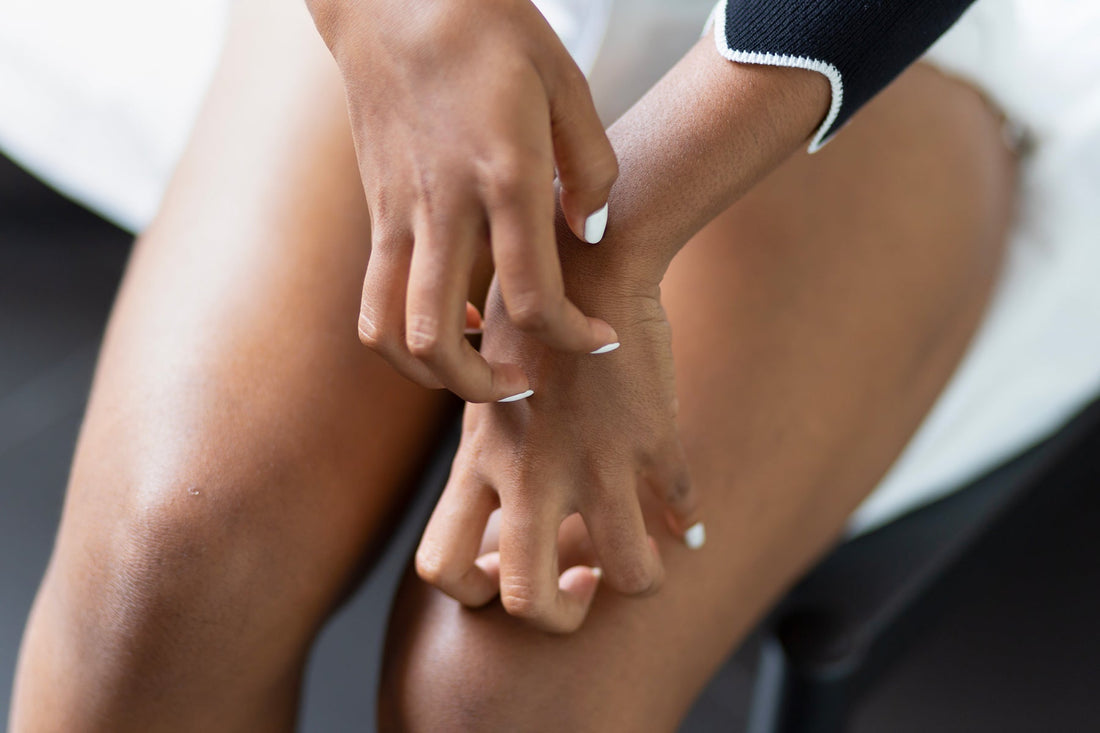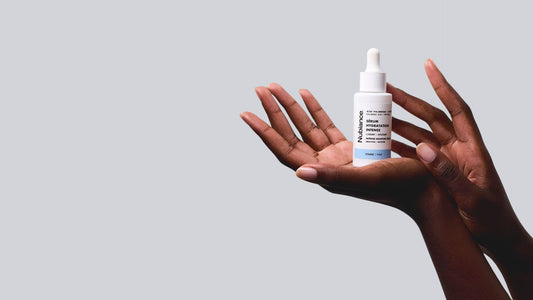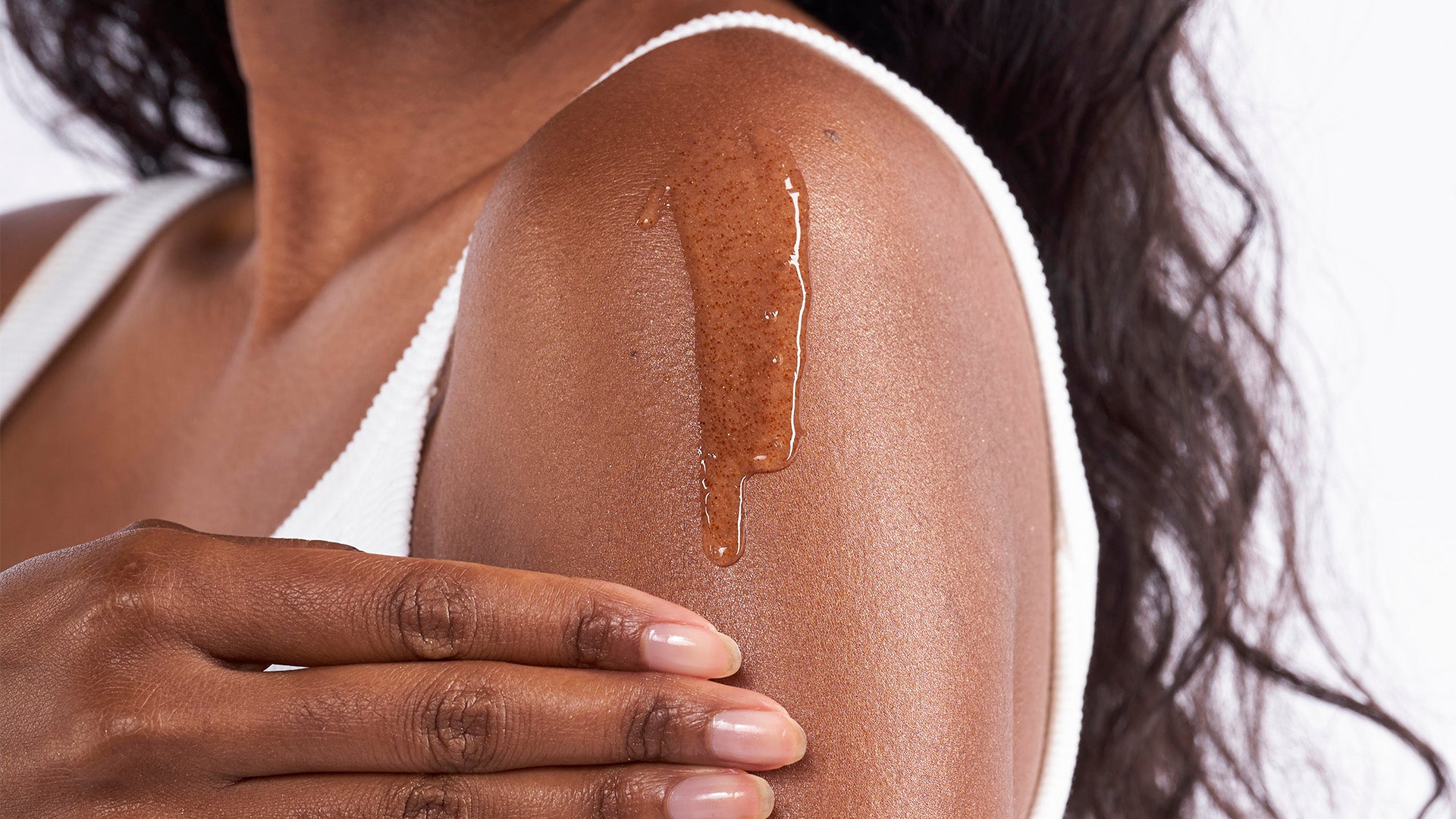
How does eczema appear on black skin?
Sommaire
- Les symptômes d'un eczéma sur peau noire et métissée
- À quoi ressemble l'eczéma sur les peaux noires et métisses ?
- Pourquoi les peaux noires souffrent-elles davantage d'une dermatite atopique ?
- Les facteurs de l'eczéma sur les peaux nubiennes
- Eczéma sur peau noire : comment éliminer les taches liées au grattage ?
Partager
Eczema is a skin condition that affects all skin tones. Also known as atopic dermatitis , it manifests itself through the appearance of inflamed patches often accompanied by small pimples called vesicles. But on black, mixed-race, or dark skin , the redness is less visible...
Symptoms of eczema on black and mixed-race skin
Typically, this skin condition is characterized by a red rash. However, these patches are difficult to identify on pigmented skin . In any case, the infected areas differ from the rest of the body by a dark brown, purple, and ash-gray appearance.
The dermatologist for black skin begins the diagnosis by inspecting the appearance of an unaffected area. They then compare the color and texture with the part of the body showing active symptoms. People with dark skin commonly suffer from eczema on the front of the arms and legs. However, it's not uncommon for these patches to form on the face and neck.
This skin health problem is easily recognized by:
- Dry or even flaky skin;
- Intense itching;
- Lichenification or thickening of the skin;
- Lesions or oozing on the plaques due to scratching;
- Small bumps on the arms or legs;
- Follicular accentuation or increasingly pronounced bumps around hair follicles.
When you suffer from atopic eczema , the infected area becomes crisscrossed and darker than the rest of the body. But this isn't always the case! Inflammation is more pronounced on black, dark, or mixed-race skin. As a result, irritation and itching are more severe, leading to incessant scratching.
This will either cause hyperpigmentation and the skin becomes darker, or hypopigmentation and the skin becomes lighter. In both cases, skin pigmentation can last for several months, even after eczema treatment . Nubiance dermatology experts offer personalized advice and recommend early treatment to reduce this pigment change in time. You can therefore take advantage of our range of anti-blemish skin care to erase this black skin eczema, as well as our collection of products against dark spots .

What does eczema look like on black and mixed-race skin?
Generally, the symptoms of eczema are similar regardless of skin color. However, this is not entirely true. While itching, blisters, and scales are present in all skin tones, the color of the lesions differs slightly . On darker skin, rashes tend to be brown or gray. Eczema lesions therefore appear darker than the rest of the body. This is even more noticeable when the eczema is in the lichenification stage, which is when the skin becomes rough and thickened.
Sometimes eczematous lesions leave brown spots after healing, partly due to scratching. This phenomenon is even more common in people with black skin. Indeed, when the skin is irritated, it triggers an inflammatory response, resulting in the release of pro-inflammatory cytokines . These cause the activation of melanocytes, cells in the basal layer of the epidermis responsible for synthesizing melanin , the pigment that gives the skin its color. In people with black skin, the melanin produced is darker, called eumelanin , which increases the risk of hyperpigmentation.
Why do black skin suffer more from atopic dermatitis?
Eczema can be more or less pronounced depending on different skin color types. It can affect Nubian skin as well as Caucasian skin. However, and contrary to popular belief, dark skin is more vulnerable to this skin inflammation. Rich in melanin, black skin does not retain enough water and therefore tends to become dehydrated. Unfortunately, dry skin is a breeding ground for eczema, especially if you live in a dry and cold climate. Atopic dermatitis on black skin is a natural reaction of the skin in response to dry skin.
Most often, skin of color suffers from hyperpigmentation because inflammation stimulates the overproduction of melanin, making the affected area darker. In some cases, the skin reacts differently. To protect itself, it produces excess sebum, which can lead to the appearance of acne.
Regardless, there are effective treatments like cortisone cream and emollients to stop inflammation, restore the protective hydrolipidic film , and deeply moisturize the skin. Nubiance offers a range of anti-blemish products to help you get rid of dark spots related to skin pigmentation . We also have anti-blemish products for black skin to fight acne.

Factors of eczema in Nubian skin
Eczema is a chronic condition characterized by periods of worsening symptoms, called eczema flare-ups, and periods of remission.
Atopic eczema
Atopic eczema is a skin condition caused by a genetic predisposition . People with atopic eczema have a fragile skin barrier, making it easier for allergens to pass through their skin. Additionally, their immune system overreacts to external factors, triggering disproportionate inflammatory reactions when exposed to common allergens such as pet dander, pollen, and dust.
Contact eczema
Contact dermatitis occurs when the skin comes into contact with a specific allergenic substance . The main sources of allergens responsible for contact eczema are clothing, cosmetics, topically applied medications, and occupational allergens present in the workplace.
Eczema on black skin: how to remove spots caused by scratching?
Sometimes, scratching can lead to pigmentation disorders such as hyperpigmentation or depigmentation, also called hypopigmentation , which manifests itself by the appearance of light patches or scabs. Hyperpigmentation is a defensive reaction of the skin in which the melanocytes produce more melanin. On the other hand, depigmentation reflects a depletion of the melanocytes. In all cases, know that these skin reactions are benign and transient . They should fade with the management of eczema.
Contrary to popular belief, these pigmentation disorders are not secondary to cortisone-based eczema treatment. In fact, one of the side effects of cortisone creams is to cause depigmentation . Under normal conditions of use, cortisone creams have an anti-inflammatory and non-depigmenting action, including on eczema in black skin.
Eczema in dark skin has specific characteristics that you need to take into account. Taking steps to prevent your skin from drying out, along with increasing your hydration, is essential to limit this atopic eczema . Say goodbye to redness and tightness with Nubiance skincare products specially designed for mixed-race and black skin .




